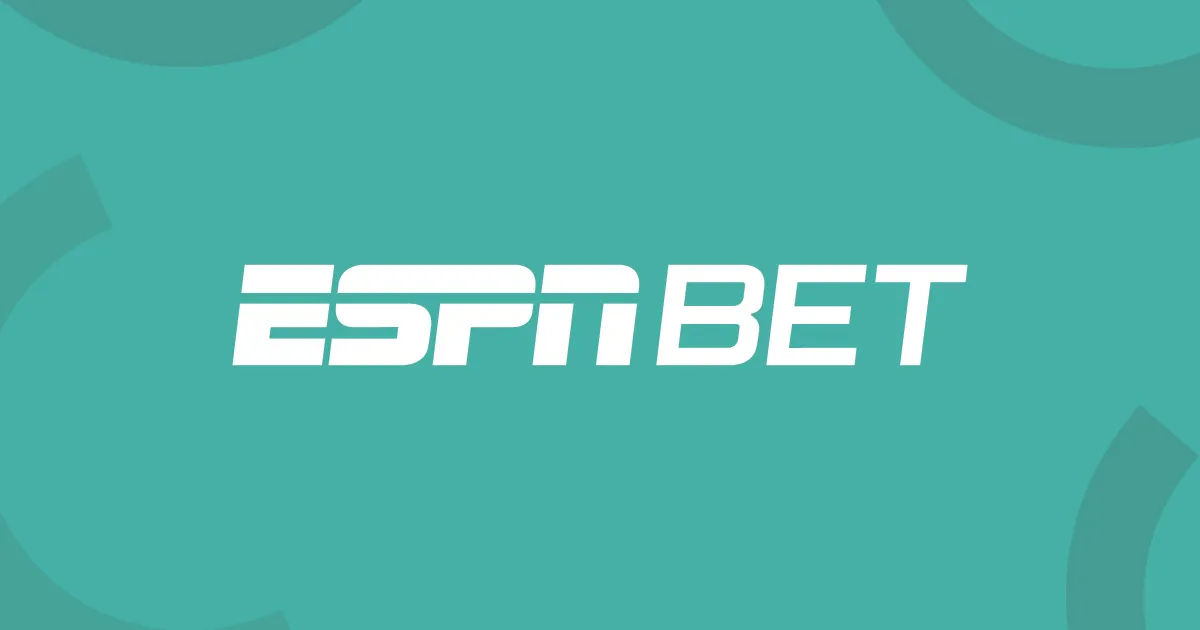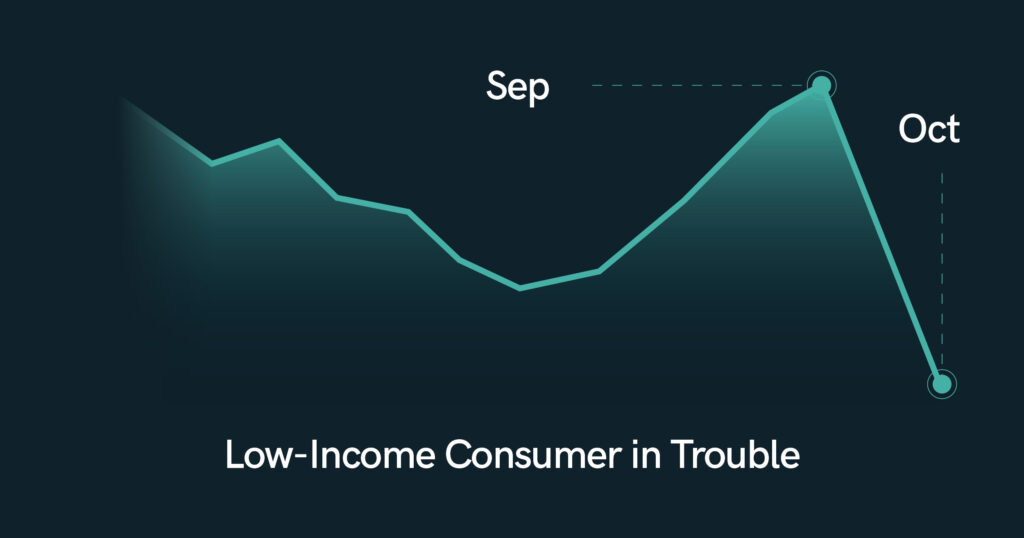PENN’s rebrand as ESPN BET is set to launch in 17 states on November 14th following PENN’s $2 billion+ licensing partnership deal with ESPN announced in August. If the year was 2018, 2019 or even 2020, following the Supreme Court’s reversal of PASPA allowing states to decide themselves on sports gambling, the move would have been deemed bold and pioneering. ESPN BET would be in the sole position to capture the minds of bettors nationwide as states moved to legalize sports betting and bettors acclimated to the new era of betting NFL games on their phone and not through a call to a local bookie. Now 38 US states have legalized sports betting in various forms. DraftKings and FanDuel (Flutter is the holding company) have emerged as the runaway leaders holding 80% market share with the remainder held tightly by MGM and Caesars just as Fanatics storms into the market.
Duopoly
FanDuel and Draftkings have pulled away from the pack, now accounting for 75-80% of the market, varying based on the state. Large casino operators MGM and Caesars have spent considerable amounts of marketing dollars to acquire customers only to see mid to high single digits of market share. Ramping up marketing dollars to provide users with first time deposit bonuses, promo specials and other bonuses is no guarantee of acquiring long-term customers. Look no further than casino giant Wynn (WynnBet) who exited operations in 10 of its 12 states due to “outsized marketing spend through user acquisition and promotions in online sports betting”. Often, users will take advantage of one-time promotions by whichever sportsbook offers them up only to stick with their favorite sportsbook, likely one of the two market leaders.
Here Comes Fanatics
Fanatics, through the acquisition of PointsBet for $225 million, targets significant market share as they enter the initial 8 states that approved the license transfer and an additional 5 near term once those states formally approve. Fanatics now has sports betting licenses in 4 of the biggest states where betting is already legalized- New York, New Jersey, Pennsylvania and Michigan. PENN’s market share in NJ, PA and MI will be under attack as Fanatics enters the market. Backed by the major sports leagues (NFL, MLB, NHL), a massive, detailed sports customer user base and cash hoard, Fanatics will be aggressively vying for market share in existing and new states.
Background on Barstool Sports and PENN initial courting
PENN initially hitched its wagon to Dave Portnoy and Barstool Sports in February 2020 by taking a 36% stake for $163 million—$135 million in cash and $28 million in preferred stock—with the remainder eventually acquired in February 2023 for $388 million (total $551 million).
“Barstool is a proven, powerful media brand with an authentic voice and vast, loyal audience that provides us with a strong top of funnel for new customer acquisition and organic cross-selling opportunities across our growing interactive division” -PENN CEO Jay Snowden in a February 18, 2023 company statement
PENN rolled out the BarStool Sports app in 17 states and despite early success in states such as Pennsylvania and Michigan, they are a distant second-tier player, consistently ranking anywhere from 4th to 6th among operators, with low to mid-single digit market share (based on revenue and handle). Below are some noteworthy states results with PENN’s market share in terms of revenue, which is defined as an operator’s take after paying out winners and accounting for promotions.
- New Jersey- 2.8% share of revenue, $20.2 million YTD (through September 30, 2023)
- Massachusetts- 1.5% share of revenue $9.4 million YTD
- Ohio- 2.7% share of revenue, $17.1 million YTD
- Pennsylvania- 5.2% share of revenue, $13.8 million YTD
Clearly, PENN could not get the market share they needed with Barstool Sports to make a run at being a top 3 provider, but it seems rash that only five months after exercising their option and paying an additional $405.5 million to acquire the remaining 64% of Barstool, they abandoned ship. PENN formalized its dramatic 180 pivot from Barstool Sports in August by “selling” it back to the original founder Dave Portnoy for $1.
ESPN and Draftkings Looked Like Match Made in Heaven
Disney owns 6% of Draftkings that they inherited from Fox Sports in 2019. The following year, ESPN established exclusive multi-year co-marketing agreements with Caesars and DraftKings. At the time of the deal DraftKings CEO made the following remark-
“We are very excited to be expanding our relationship with ESPN to include deeper integration of both our sports betting and daily fantasy sports offerings across their platforms. ESPN’s reach amongst sports fans is unparalleled, and the start of NFL is the perfect time for DraftKings to be launching this integration.”
Draftkings and Caesars both had deep integration into the ESPN database allowing them to market to and acquire these users for the last 3 years. In October 2022, a report from Darren Rovell at Action Network speculated that ESPN was looking for $3 billion to exclusively partner with a sports betting partner rebranding as ESPN and Draftkings was the frontrunner. Nothing ended up happening.
PENN Emerges as Winning Bidder for ESPN
One year later, as Disney’s focus on cost reduction and value extraction goes into overdrive under returning CEO Bob Iger, ESPN presumably turned again to these two partners to see if they would be interested in an outright licensing deal that had been rumored for years. Draftkings likely did not see a need to rebrand with their own strong brand equity and customer database already encompassing the vast majority.

PENN agreed to pay ESPN $1.5 billion in cash over 10 years ($150 million per year) plus issuing $500 million in warrants upfront (additional warrants if performance metrics reached) in exchange for the ESPN licensing rights and exclusive partnership. In marketing the merits of the deal, PENN CEO points to the ability to market to ESPN’s 200 million monthly digital users, 12 million of whom are regular ESPN Fantasy app users, as likely ESPN BET customers. How likely are these Fantasy users not currently customers of Draftkings and Caesars after 3 years of deep integration with ESPN’s customer databases?
Red as Far as the Eye Can See
FanDuel became the first online sportsbook to post an EBITDA profit for the first half of 2023 (note they report Q3 on November 9) and Draftkings issuing preliminary 2024 Adjusted EBITDA profit of $350-$450 million. Meanwhile, PENN guided their interactive segment (i.e. online sportsbook) to lose $100 to $150 million in the fourth quarter alone as they launch ESPN BET. Over the next three years, PENN expects the Interactive segment to generate losses in both 2024 and 2025 with “breakeven or modestly positive EBITDA” not until 2026. It will not be until 2027 when the company expects to achieve between 10% and 20% OSB market share.

Both sides can end the deal after 3 years if ESPN Bet has not achieved certain market share numbers, which are likely 10-20% in OSB and 8-16% in iGaming. As OSB leaders have clear eyesight to strong profitability in 2024 and beyond, it’s hard to imagine investors waiting patiently as PENN tries to pull off a dramatic share grab against a well executing duopoly and an industry behemoth entering the fray.



